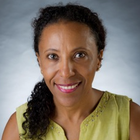
Dr. Asqual Getaneh
By Dr. Asqual Getaneh
ICHS Medical Director
The U.S. Department of Homeland Security’s proposed expansion of the public charge rule unfairly targets legal immigrants seeking permanent status who use federally-funded services for which they are eligible, including Medicaid, housing support, food stamps, and Medicare prescription subsidies.
The view is that immigrants rely on these benefits and cost the U.S. Actually, the proposal will further burden taxpayers as it increases the cost of health care, adversely impacts the health of children and the elderly, and raises the risk of preventable epidemics.
Immigrants come to the U.S. for safety, freedom and economic opportunities. Evidence disputes the claim they rely on an unequal share of public benefits. Data shows immigrants are less likely to access public benefit programs due to existing restrictions. Eighty-three percent of non-citizen households have at least one full-time worker. Both documented and undocumented immigrants contribute far more in taxes than they use in public benefits. As an example, immigrants in Texas counties affected by Hurricane Harvey were found more likely to report loss of employment and income, and less likely to access emergency assistance.
By the government’s own admission, the expanded rule will reduce access to preventive health care, increase the utilization of emergency medical services, and increase dis-enrollment from public assistance programs. Individuals, out of fear, confusion and lack of health insurance will forego needed care for their acute or chronic medical conditions such as hypertension or asthma. As a result, the number of those with uncontrolled medical conditions and the incidence of preventable and costly complications will rise.
The rule on Medicare Part D will reduce access to medicines for older adults. Most older adults are on fixed incomes. When the cost of drugs becomes too high they will skip or divide doses, or simply not purchase what they cannot afford. Poor adherence to medicines causes 125,000 deaths per year. Many elderly with multiple medical conditions are also at risk of significant complications and side effects from medicines. The expanded rule could steer patients toward less optimal but more affordable medication options. This could have the untoward consequence of increased hospitalization for medication related side effects and poorly controlled chronic medical conditions. If optimally managed, an estimated 50 percent mortality reduction can be gained from cardiovascular medicines alone.
Efforts to confine epidemics such as influenza could be hampered. The expanded rule will reduce the number of individuals who receive flu and other vaccinations. There are 9 to 35 million cases of influenza that result in 12,000 to 56,000 deaths annually, 80 percent were among people who were not vaccinated. The likelihood of exposure could increase, leading to increased mortality among the most vulnerable: children, older adults, and those with chronic illnesses. The expanded rule will also limit the number of individuals that could be diagnosed early, reducing the ability of health care workers to identify and confine infections.
Our health system and workers will pay the cost. Health research in the last several decades has demonstrated that food, housing, safety, stress and social support are intricately related to health. Health centers like ours, health care management organizations, and public health institutions have made strides in addressing these social factors in patient care. The expanded rule disrupts long-term progress. It will increase food insecurity, reduce prenatal and post-natal care, and make the control of many chronic medical conditions difficult. Burnout rate among health care workers is already high. There will be additional adverse effects as they find themselves grappling with decisions stressful to those who have taken the oath “to apply for the benefit of the sick all measures which are required…” and to centers like ours committed to serving all patients regardless of ability to pay.
These adverse health effects will stay with us for generations. A survey among families who immigrated from 15 countries showed that children experience “toxic stress” from threats of deportation even when their families might be unaffected. They experience unexplained headaches, loss of appetite, insomnia, panic attacks, depression, and anxiety. School performance and attendance declined. In the current anti-immigrant environment, school bullying has also increased, compounding the stress and isolation of immigrant children. Toxic stress has direct, ongoing and long-term health consequences, such as reduced physical, cognitive and emotional growth and development in childhood and poor adult health outcomes such as diabetes, cancer, and cardiovascular diseases. Toxic stress in childhood also changes gene expression with evidence of impact for more than one generation.



